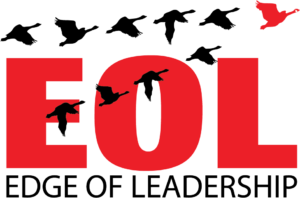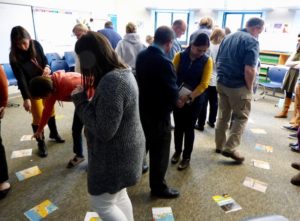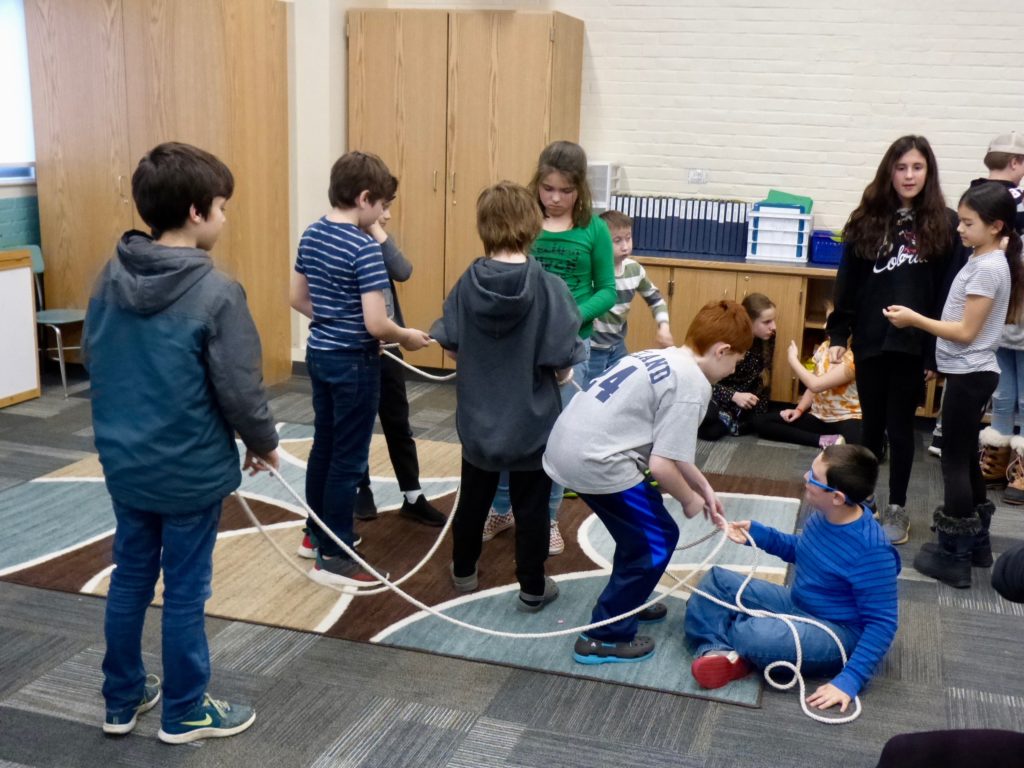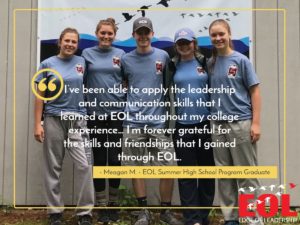No Quick Fix to Social & Emotional Learning In School
We Agree, There is No Quick Fix to Social and Emotional Learning in School. But We Do Have a Solution!
By Ryan McCormick & Jim Grout
Marc Brackett and Diana Divecha, experts in social and emotional learning (SEL) from the Yale Center for Emotional Intelligence, recently published an article in Education Week emphasizing the growing challenges associated with the development and implementation of an effective SEL program. The title of the article, “Sorry, There’s No Easy Toolkit for Social-Emotional Learning… But it’s Worth the Work”, suggests there’s no quick fix or simple solution – developing strong SEL skills is hard work that takes time, continuity, and training of students, teachers, and administrators.
Time, continuity, and training, as described in the article, are key programming components emphasized in our Edge of Leadership (EOL) program, an enhancement to the traditional academic curriculum combining leadership training with social and emotional learning at its foundation.
Edge of Leadership–Connect. Empower. Lead…Be the Example

High 5’s EOL program is now in its 7th year of operation in the Keene NH public school district. Our team’s work with students and teachers in grades 5 through 7 is helping increase the development of social-emotional skills through long-term partnerships with teachers that model instructional activities and reflective practices emphasizing relationships, self-awareness, self-management, social awareness, and responsible decision-making.
EOL’s motto: Connect. Empower. Lead…Be the Example defines our programmatic template, one we have discovered applies to teachers and administrators, as well as students, effectively embracing the entire school community.
The Power of Consistent Programming in SEL
Over time, our thinking about EOL has evolved from a traditional student-centered program to a more, all-encompassing, community-centered leadership model. The research described in the article supports the need to embed SEL practices throughout the school. Why? Because developing social-emotional intelligence isn’t the work of a few hours of focused training; it is lifelong work. Within EOL, teachers see the positive impact of the program on the learning environment, which in turn allows them to direct more energy towards teaching and less on classroom management. Additionally, in Keene’s forward-thinking Middle School our team not only delivers student programs but also team development programs for teachers and administrators and more so, is working in partnership with teachers to embed everyday SEL lessons throughout the school day and the entire school community.
Filling the Gaps in Professional Training
With teachers wanting to know more about social and emotional learning, a subject not often included in their collegiate teacher training curriculum, High 5 began collaborating with Keene State College to develop graduate-level courses and professional training workshops. These workshops aimed at increasing teachers’ and administrators’ understanding of the vital role the EOL curriculum plays in facilitating academic learning and improving school culture—with results including decreased levels of chronic absence and reduced disciplinary referrals. Students who most needed to be in school stayed in school and increasingly saw it as a positive experience, and themselves as known and respected members of the school community. The aim was never to fix ‘broken’ children, rather it was to give them the skills to recognize and name emotions at an early age and to begin to see themselves as capable leaders in the classroom and in the community at large. Remember that motto: Connect. Empower. Lead…Be the Example.
Sustainability and Success Factors in SEL
High 5’s Edge of Leadership is complex and responsive, adapting to the needs and developmental/maturational levels of the student population, as well as to the needs of the classroom teacher. A principal reason for EOL’s success is its consistency. It has developed over a period of years during which it has been supported financially by a very generous and foresighted donor, and programmatically by school and district leaders who have seen positive changes and are determined to see them become a permanent part of the educational experience in Keene. There are no faint hearts or fair-weather friends involved in EOL’s success. Adequate financial support and committed leadership are essential components of any reform that are widely recognized, but they are critically important for developing a successful SEL program.
Why? Because SEL’s success depends on professional educators, both in the classroom and in administrative leadership positions, who have been trained in social and emotional learning practices and understand that students’ social-emotional intelligence is inseparably linked to their growing sense of self-confidence and efficacy, and academic achievement. Working together, they help to support a positive learning environment and a complete educational experience. And working together, they support the healthy development and success of the whole child and the adult they will become.


